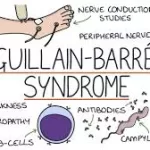In a groundbreaking study, scientists have discovered that adopting a playful approach to life can significantly enhance resilience during difficult times. The study, published in Frontiers in Psychology, introduces the concept of ‘lemonading’—the ability to imagine and generate positive experiences even in adversity.
The Science Behind ‘Lemonading’
Dr. Xiangyou “Sharon” Shen of Oregon State University, the corresponding author of the study, emphasized that playfulness and resilience are closely linked. By surveying individuals during the COVID-19 lockdown, Shen and her colleagues found that highly playful people were more optimistic about the future and coped more actively and creatively.
“While more and less playful individuals reported feeling equally vulnerable and isolated during the pandemic, highly playful people actively altered challenging situations, found creative substitutes for what was lost, viewed obstacles as opportunities for growth, and maintained a sense of control over their responses,” said Shen.
Investigating the Playfulness Factor
The research team surveyed 503 U.S. adults in February 2021, during the second wave of the pandemic and the early rollout of vaccines. Participants were asked about their risk perception, future expectations, social support, and emotional and behavioral responses. They were also evaluated on their level of playfulness, including spontaneity, inhibition, and motivation to seek fun.
The researchers then divided participants into quartiles based on their playfulness ratings, comparing the most playful 126 participants to the least playful 126 participants.
Optimism and Adaptability
The results showed that playful individuals were more optimistic about the future, including the success of vaccines and a return to normalcy. However, this optimism was not blind positivity.
“Playful individuals didn’t minimize COVID-19 risks or overestimate the effectiveness of protective measures. Instead, they focused on possibilities for positive change and growth,” Shen explained.
Highly playful people demonstrated greater behavioral flexibility, actively engaging in activities in creative ways. While both groups reported similar levels of vulnerability and isolation, the playful group adapted more effectively. They modified their schedules, explored new places, and found innovative ways to remain active and engaged in daily life.
Cultivating Playfulness
Although the study primarily measured playfulness rather than promoting its development, Shen highlighted ways to foster a more playful mindset.
“Engaging in activities that bring joy, being open to new experiences, and surrounding yourself with laughter can help cultivate playfulness. You don’t have to play to be playful—it’s about bringing a spirit of fun, openness, and flexibility to everyday moments,” she advised.
Implications for Future Research
The study underscores the importance of playfulness as a psychological resource, particularly in times of crisis. “Understanding how playful individuals navigate adversity can inform strategies to help people cope with stress and uncertainty. This is especially relevant as the world faces increasing challenges that require both realistic assessment and creative adaptation,” Shen said.
However, the researchers cautioned against over-generalizing their findings. Playfulness likely interacts with other personality traits and environmental factors, making its effects situation-dependent. Future research will explore how playfulness influences different aspects of life and coping mechanisms.
Disclaimer: The findings of this study provide insight into the potential benefits of playfulness in coping with adversity. However, they do not suggest that playfulness alone is a solution to all challenges. Individual experiences may vary, and further research is needed to fully understand the scope of playfulness in different life situations.











